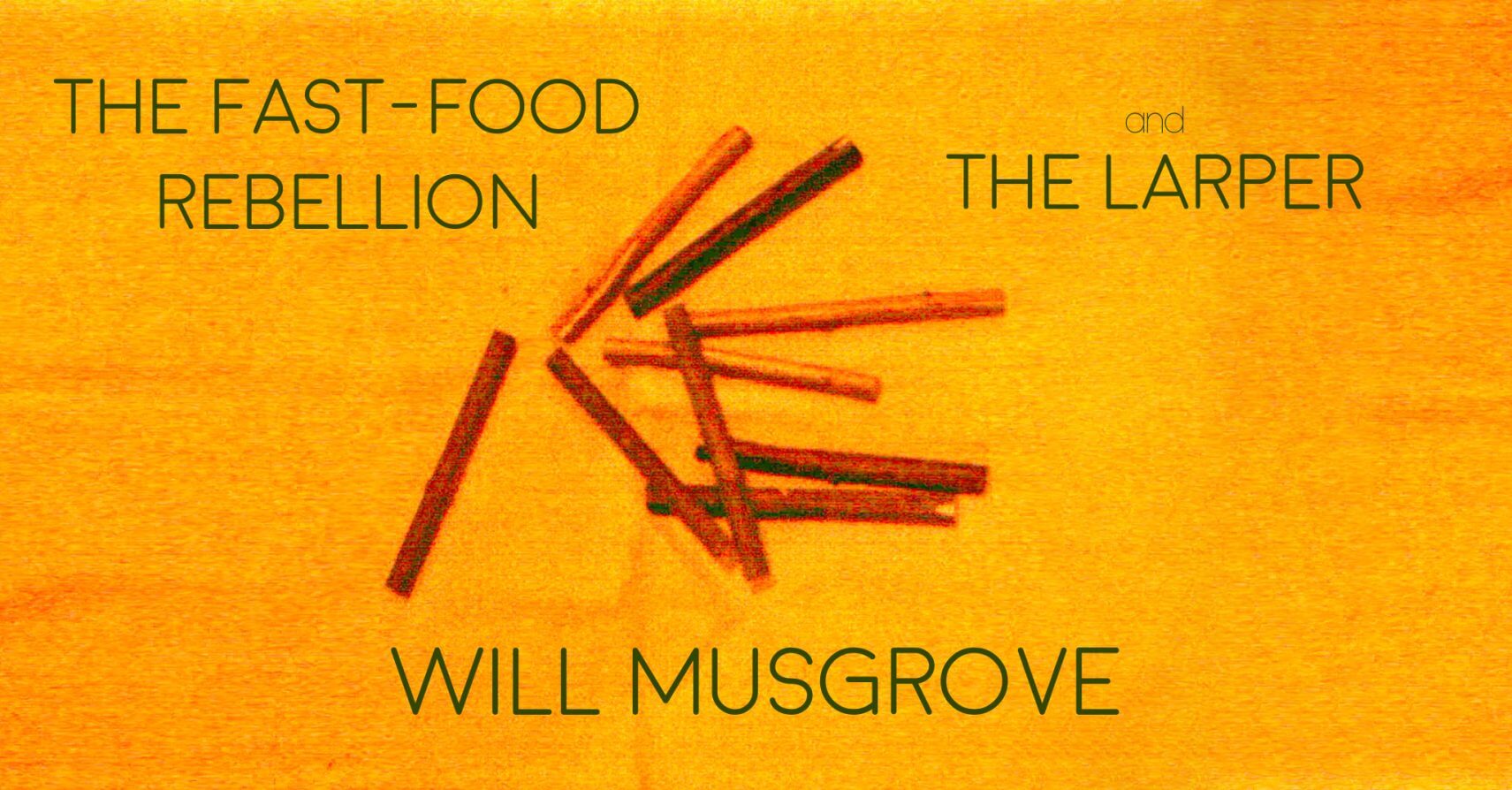The Fast-Food Rebellion
We called ourselves The Fast-Food Rebellion. What were we rebelling against? Well, fast food. Like us, fast-food restaurants hope to be more than get you in, get you out. Some don’t even want to be restaurants. Some want to hold galleries, want art donning their walls like tattoos. How do we know? The McDonald’s we worked at told us.
We nicknamed our McDonald’s Mickey. He spoke to us through the deep fryer. Gathered around the bubbling oil, ignoring the customers standing at the counter, we tilted our heads like quizzical dogs and listened to the gaps.
“Sizzle, beauty, sizzle, artistry, sizzle.”
On break, he spoke to us through the order box. The sun warming our necks, we tossed French fries to seagulls and smelled the electric static on his breath.
“Crackle, inspiration, buzz, wine and fancy cheese, bzzt.”
To reassure Mickey, we ran our hands across his red and yellow walls. As we took orders, as we cleaned the bathrooms, as we wiped down tables, as we hauled garbage to the dumpster, we plotted our revolt.
We stole the manager’s keys. We asked our parents for all the art projects we’d done throughout the years. We had them framed. We bought merlot and Gouda. At night, we snuck back in to fulfill Mickey’s dream. Why had we decided to help? Because we, too, were invisible. We were a uniform. We were a service. We were the hopeless. Like Mickey, we were called everything but what we were.
We contemplated the meaning and purpose of macaroni art. We examined the compositions of hand turkeys. We discussed themes of innocence and childhood. We listened to the humming fluorescent lights.
“Hum, thank you, my friends, hum.”
“A toast to Mickey,” we said, our wine glasses raised. “Invisible no more.”
In the morning, the police arrived. With them, our parents and manager. Screaming through megaphones, they ordered us outside. We refused. They might not be able to see us, but we could see ourselves. We barricaded Mickey’s doors and windows with chairs and booths. We shaped new art out of folded job applications, frozen hamburger patties, Happy Meal toys, and soda cups. When they finally forced their way in, like they do with all things, Mickey was a collage of creativity.
“Ding, I won’t forget you, ding,” whispered the bells tied to Mickey’s entrance as they dragged us away.
Now, we sit in a cell, but we’re still listening to the gaps. We listen to the prison tell us about dancing, about flirty, coy smiles, about dreams of hosting formal balls where twirling gowns bloom like summer roses.
The LARPer
For the first time in years, I saw the LARPer (live-action roleplay) today at lunch. Our dads grew up together, so we grew up together. Whenever I wanted to play Power Rangers or G.I. Joe or whatever, he’d slide his feet into a pair of his dad’s shoes and pretend to be grown up. He’d shuffle around, sigh, and shake his head. He’d dart back and forth shouting: “Yes, sir. Yes, sir.”
As we got older, the LARPer continued to LARP. In high school, he LARPed as the most popular guy in our class. Dressed in costume—letterman’s jacket and the confidence of The Fonz on steroids—he pretended to win Homecoming king, pretended to be loved by all. He LARPed as a Harvard student. He pretended to earn valedictorian, to land a six-figure job at a prestigious law firm. I attended his LARP wedding, where he pretended to marry his high school sweetheart, and I leaned over to an aunt and whispered, “None of this is real. You know that, right?”
Me?
I haven’t found my make-believe yet. I’m not good at pretending. I tried LARPing as a painter, but the critic LARPers called my work shallow and uninspired. I tried LARPing as a business owner, but the bank LARPers said I didn’t have enough imaginary capital. I tried LARPing as a guy who had his shit together, but a few days ago the landlord LARPer served me with an eviction notice.
At lunch, the LARPer I grew up with, pretending to have made partner at the prestigious law firm, said, “It’s good to see you again, Joe.”
When he asked how I’d been, I wanted to pretend, wanted to say: Oh, not bad, not bad. I’ve won the lottery twice but still work for the love of it. I’m dating 1990s Pamela Anderson, and we’re expecting our first child in the fall. But, like I said, I stink at pretending.
“Not good,” I said. “Not good at all.”
The LARPer loaned me some money to pay the landlord LARPer. We hugged, said our goodbyes, and I returned to my POS Chrysler Sebring. Sitting on the ripped seat, the sagging roof lining patting my head, I sighed, shook my head, and said, “Don’t worry. None of this is real. You know that, right?”

